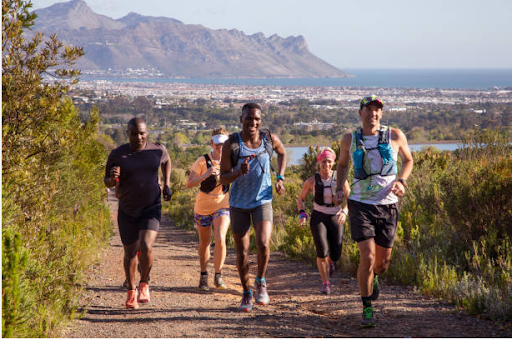Success in long-distance trail races demands more than physical endurance, as per Steven Rindner. Proper nutrition is a critical component often overlooked by even seasoned athletes. Strategic fueling sustains energy, prevents fatigue, and enhances recovery, directly impacting performance. This blog outlines actionable nutrition strategies tailored for trail runners aiming to optimize their race-day outcomes.
Balancing Macronutrients for Sustained Energy
Carbohydrates remain the primary fuel source for endurance activities. According to Steven Rindner, athletes should aim for 30–60 grams of carbohydrates per hour during races. Options like energy gels, bananas, or dried fruit provide quick digestion. Pairing these with small amounts of protein—such as nut butter or jerky—can stabilize energy levels. Healthy fats, like those in nuts or seeds, offer sustained energy but should be consumed sparingly to avoid digestive strain.
Hydration and Electrolyte Management
Dehydration and electrolyte imbalances are common pitfalls. Runners must prioritize fluid intake, adjusting for weather and exertion. A general guideline is 16–24 ounces of water per hour, though individual needs vary. Electrolyte tablets or sports drinks help replenish sodium, potassium, and magnesium lost through sweat. Over-hydration can be equally dangerous; monitoring urine color (pale yellow indicates proper hydration) offers a simple check.
Pre-Race Nutrition Planning
The 24–48 hours before a race are crucial for glycogen storage. Meals should emphasize complex carbohydrates, such as quinoa, oats, or sweet potatoes—paired with lean proteins and vegetables. Avoid high-fiber or fatty foods to prevent gastrointestinal discomfort. A light, carb-focused meal 2–3 hours before the start—such as toast with honey or a banana—ensures accessible energy without stomach distress.
Fueling During the Race
Consistency is key. Small, frequent intake prevents energy crashes. Set reminders to consume calories every 30–45 minutes. Portable options like energy bars, pretzels, or tailored sports products work well. For ultra-marathons exceeding six hours, incorporate real foods like boiled potatoes or rice balls to combat taste fatigue. Avoid experimenting with new foods on race day; stick to tested options.
Recovery Nutrition Post-Race
Recovery begins immediately after finishing. A mix of carbohydrates and protein within 30 minutes—chocolate milk, a recovery shake, or yogurt with fruit—kick-starts muscle repair. Follow this with a balanced meal within two hours. Hydration and electrolyte replenishment continue post-race to aid recovery. Sleep and rest further enhance the body’s ability to absorb nutrients.
Tailoring Strategies to Individual Needs
Nutrition is highly personal. Factors like sweat rate, metabolic efficiency, and gut tolerance vary. Athletes should test different foods and hydration plans during training. Keeping a nutrition log helps identify what works. Consulting a sports dietitian can provide customized strategies, ensuring race-day plans align with physiological needs.
Emerging Nutritional Strategies and Practical Tips
Beyond the basics, emerging strategies focus on gut training to improve tolerance of high-carb intake during races. This involves gradually increasing carbohydrate consumption during training to condition the gut. Collagen supplementation is also gaining attention for its potential to support connective tissue health and aid recovery.
Practical tips include carrying easily digestible snacks in resealable bags or flasks for quick access. Consider pre-mixing powdered electrolytes in water bottles to avoid fumbling during the race. For very long races, plan for real food pit stops, where you can consume warm, easily digestible meals.
Mental Nutrition and Mindfulness
Nutrition isn’t solely physical; mental nutrition plays a role. Practicing mindfulness during eating can improve digestion and absorption. Avoid distractions while fueling and focus on how your body feels. Positive self-talk and visualization can also enhance the perceived benefits of nutrition strategies during challenging moments.
Long-distance trail racing tests both physical and mental resilience, as per Steven Rindner. Proper nutrition transforms this challenge into a manageable endeavor. By prioritizing macro-nutrient balance, hydration, individualized planning, emerging strategies, and mental mindfulness, athletes can sustain energy, mitigate setbacks, and achieve peak performance. Ultimately, strategic fueling is not just a supplement to training—it is the foundation of success.


